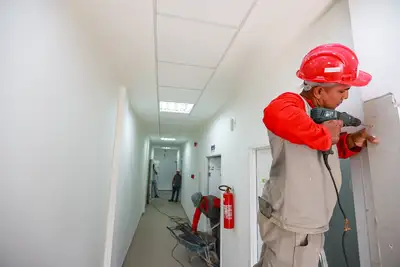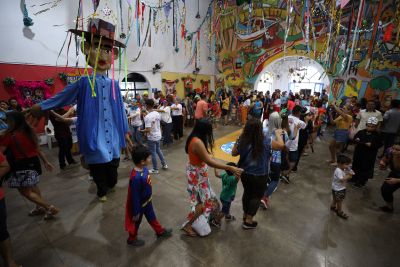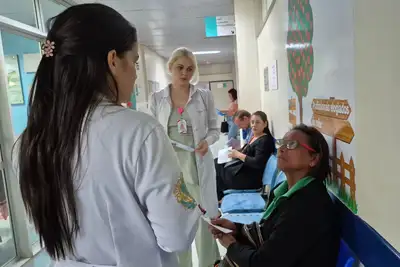At the Metropolitan Hospital, "CTQ Arraiá" combines June festival and burn prevention
Animation with music, dance, and information marked the celebration held to entertain burn patients hospitalized in the public health unit
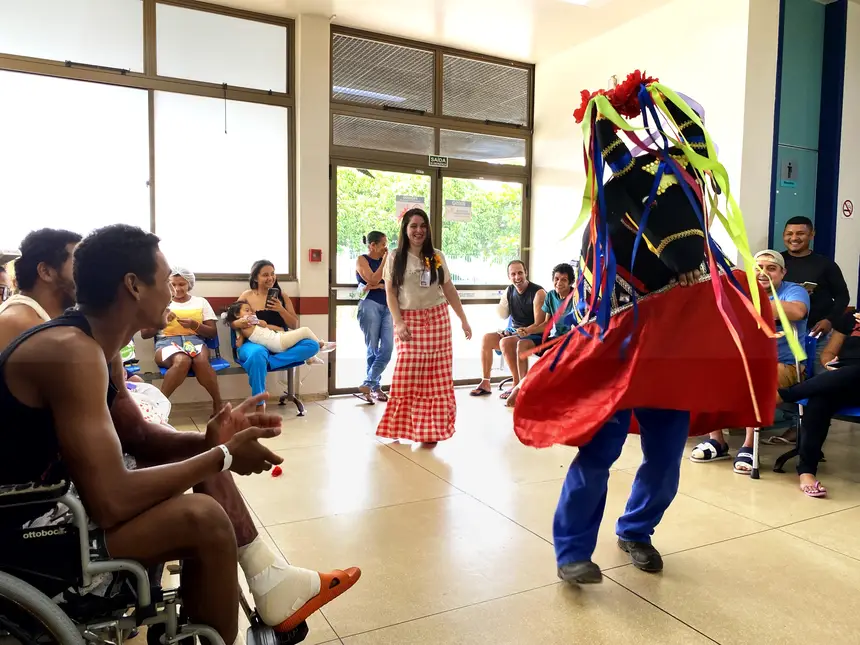
A special June program brought joy and information to the Burn Treatment Center (CTQ) of the Metropolitan Emergency Hospital (HMUE) in Ananindeua last Monday (16).
Named "CTQ Arraiá", the event, conceived by the Hospital Class and Occupational Therapy team of the unit, transformed the corridors of the unit, which belongs to the public health network of Pará, into a space of celebration and learning.
In addition to the traditional visit from the Boi-Bumbá, which entertained patients and staff, the program included an educational chat about burn accidents and prevention, active listening from patients about the incidents that led to their hospitalization, and an interactive quiz about myths and truths in burn care for adult and pediatric audiences. A themed carimbó performance completed the activities, which aimed to relieve the stress and anxiety of hospitalization.
"In addition to this moment being informative and humanized, we did not lose focus on physical and functional rehabilitation," highlighted occupational therapist Samanta Oliveira.
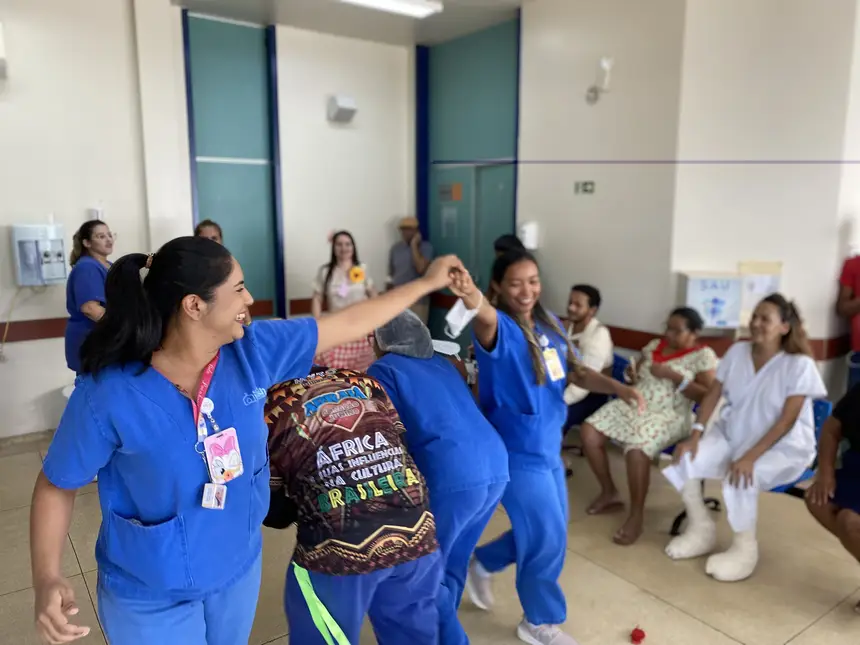
Patient Diana Rosa, hospitalized for more than two months for treatment at the CTQ, participated in the activity. "It was spectacular because we cleared up many doubts that are essential for everyone to know to avoid other burn accidents and also a moment of distraction. Very good for us who have been hospitalized for a long time,” she said.
Burn Treatment Center - Being the only unit with free care through the Unified Health System (SUS) to have a specific center for burn treatment, the Metropolitan Hospital operates with various strategies to ensure the well-being of users.
Equipped with 20 beds (18 wards and 2 ICU), the CTQ has a multidisciplinary team, including plastic surgeons, specialized nurses, and therapists, ensuring comprehensive recovery for patients. In 2024 alone, 641 patients were assisted, and in just the first four months of 2025, 191 people have already received specialized treatment.


